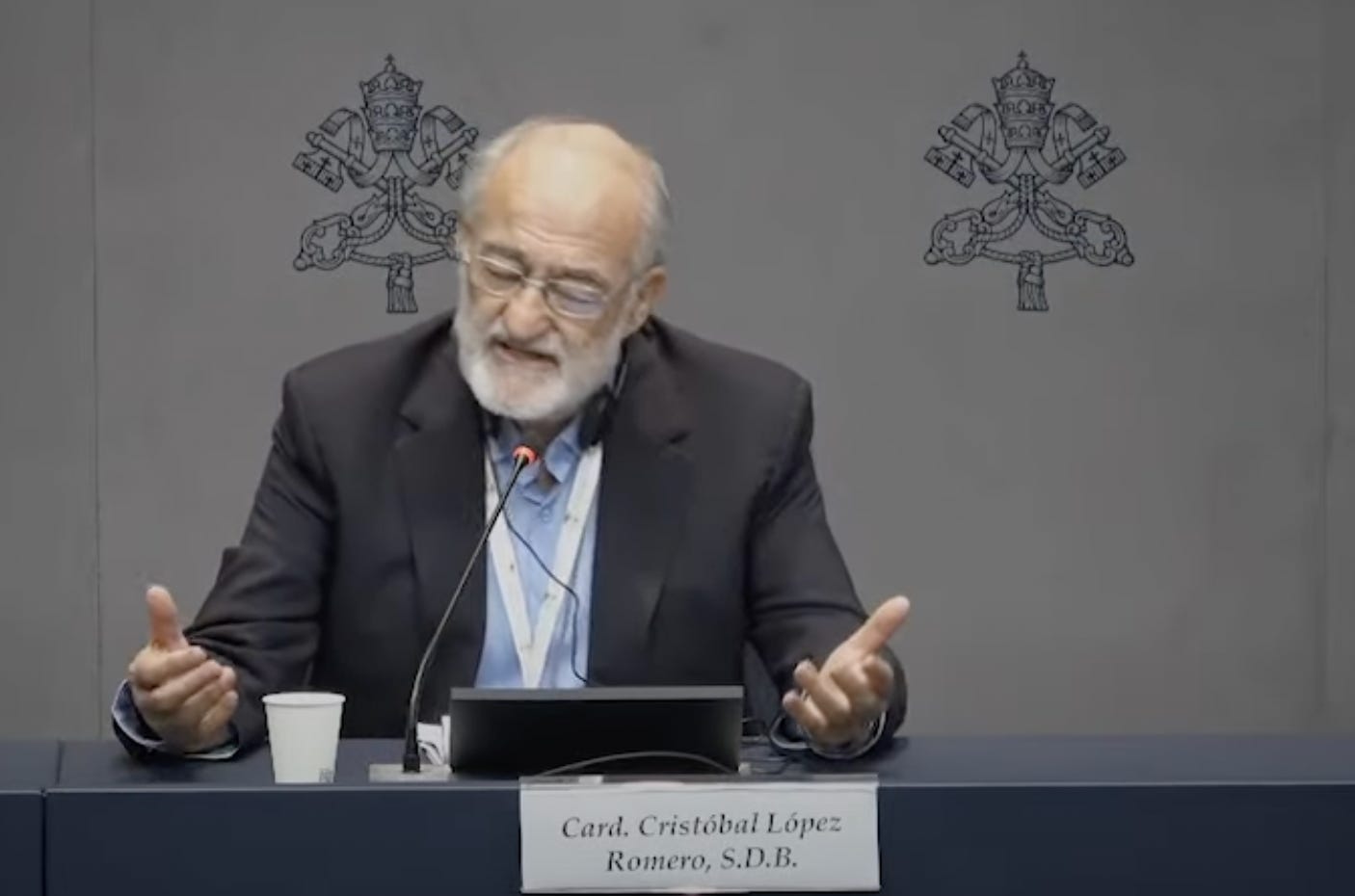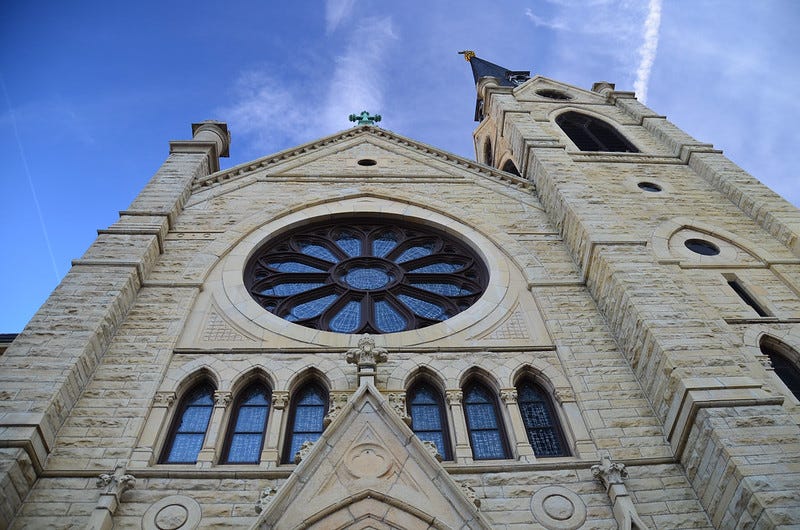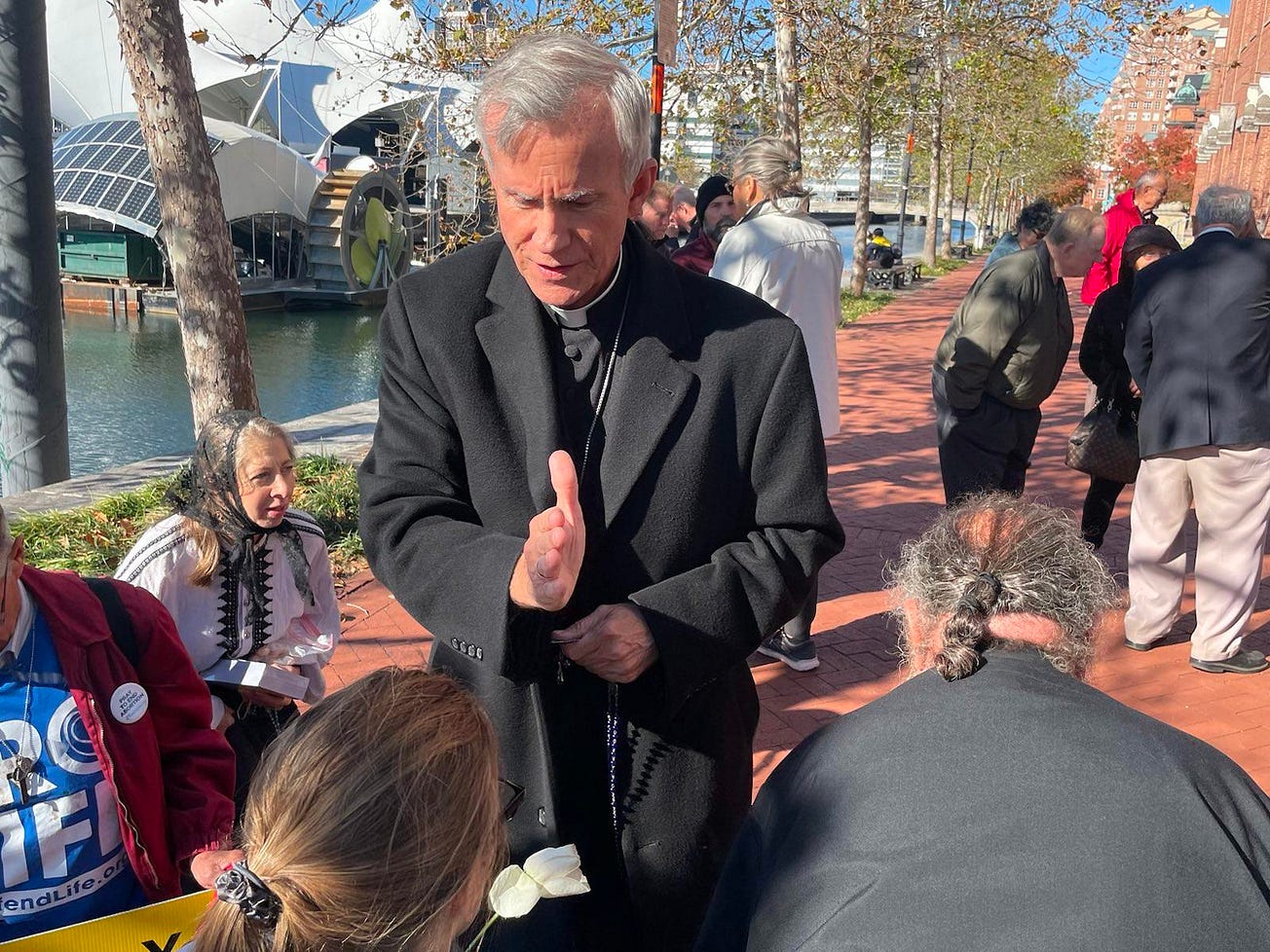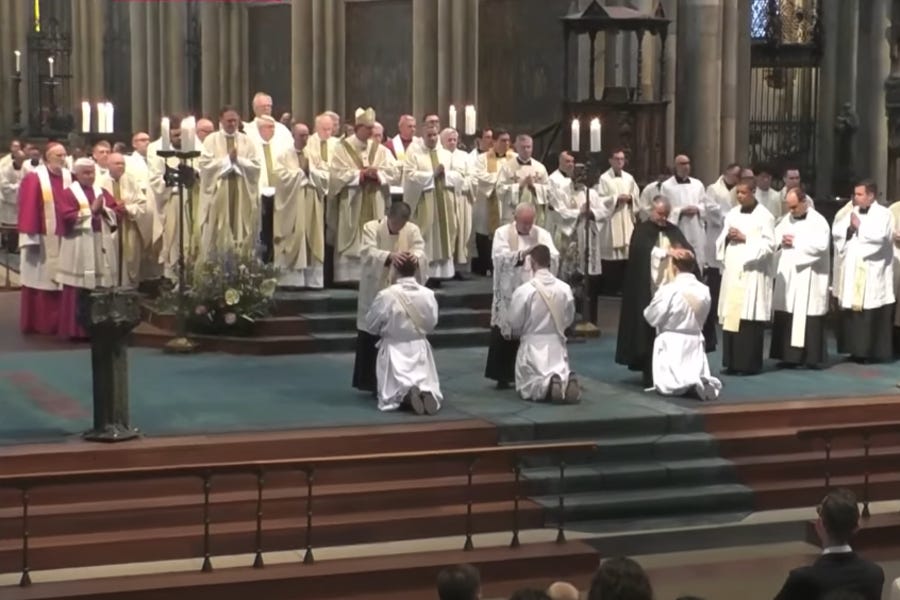The second session of the Vatican’s Synod on Synodality wrapped up its first week on Saturday.

The global meeting, considered by many to be the keystone project of Francis’ papacy, started off with a retreat for all the synodal delegates and a controversial “penitential vigil,” which gave way to the actual sessions on Wednesday, Oct 2.
While most of the discussions have happened behind closed doors, the first weeks left the Church with some memorable and controversial moments.
The pope meets Bishop Álvarez
On September 16, the Vatican announced the list of delegates for the second session of the Synod on Synodality, to be held October 2-27 this year.
Álvarez was exiled to Rome in January after being arrested by the Ortega regime and sentenced last year to 26 years in prison for conspiracy.
He had kept a low profile ever since, without any major public apparitions. Therefore, many were unsure whether Álvarez would even be present at the Synod.
But he was. Álvarez was first seen with the sole Costa Rican representative to the Synod, Bishop Javier Román Arias before the opening mass of the Synod.
Before the opening session of the synod, Álvarez got in a line to greet Pope Francis. When it was his turn, he kneeled in front of the Holy Father to be able to embrace him, while they talked and laughed out loud, as if sharing a joke.
DDF prefect says no to women’s diaconate… for now
In the opening session of the synod, the heads of the different study groups presented reports on their advances, including Cardinal Victor Manuel Fernández who led a group as DDF prefect on female diaconate.
“We know the public position of the pope, who does not consider the question mature,” he said on the issue, which has been at the forefront of most of the press conferences during the synod.
“The opportunity for a deepening remains open, but in the mind of the Holy Father, there are other issues still to be deepened and resolved before rushing to speak of a possible diaconate for some women,” he said. “Otherwise, the diaconate becomes a kind of consolation for some women, and the most decisive question of the participation of women in the church remains unanswered,” he added.
Therefore, Fernández’s answer pleased none—it wasn’t definitive enough for those against female diaconate, and it was not the approval that its supporters were seeking.
Many thought the study groups were a way to keep hot-button issues from the synodal discussions but female diaconate has been constantly brought back in press briefings, in media commentary, and, according to some delegates, even in the synod itself.
Archbishop of Rabat criticizes both Fiducia supplicans and African response for lack of synodality
Cardinal Cristóbal López Romero, S.D.B. took part in one of the press briefings during the first week of the synod, in which he spoke about his experiences with synodality in Morocco, and more broadly in North Africa.
But the bishop also made critical remarks about what he perceived as lack of synodality within the Church. He especially wondered why Fiducia supplicans, which introduced the possibility of blessing people in same-sex relationships, did not undergo a synodal process of discussion and discernment before its promulgation.
“It would’ve been better that [Fiducia supplicans] underwent a synodal path. It didn’t come out of the synod, but from the Dicastery for the Doctrine of the Faith, without us bishops knowing it was coming, without being consulted. That’s why it’s not strange that there were many reactions against some parts,” he said.
The cardinal also had critical words for the Sub-Saharan African bishops who pushed back on the document.
“My bishops’ conference made a different pronouncement [than the rest of the continent] because we were also not respected in this process of consultation at an African level. The African continent spoke without listening to us, and we’re in Africa,” he said.
Randazzo criticizes ‘obsession’ with female ordination
Bishop Anthony Randazzo of Broken Bay, Australia –president of the Federation of Catholic Bishops’ Conferences of Oceania spoke at a press conference about his experiences with synodality in Oceania.
He mentioned that synodality is a common experience for Oceania’s people, whom, he said, have practiced widespread consultative models of leadership for thousands of years, and he criticized that the “niche issues” of rich Western countries receive more attention than real issues, such as environmental problems in his region where rising sea levels threaten the very existence of many countries.
Randazzo criticized the “obsession” of a minority of Catholics in the West with female ordination.
“Those issues become all-consuming and focusing for people, to the point that they then become an imposition on people who sometimes struggle simply to feed their families, to survive the rising sea levels, or the dangerous journeys across wild oceans to resettle in new lands,” he said.
He added that he believes that female ordination has become the primary issue when discussing the role of women in the Church, which has left other important topics about women in the Church off the table.
“When we talk about women in the Church, that’s the hot-button issue, and as a consequence women in many parts of the world and the Church who are treated as second-class citizens are totally ignored,” Randazzo said.
He said this was a “scandal against the Gospel (...) all because a small minority, with a large powerful western voice, are obsessed with pushing this issue.”
Randazzo called this focus “a new form of colonialism” that oppresses the vulnerable and which is “certainly not the mind of the synodal Church in mission.”
The testimony of Bishop Mounir Khairallah
Bishop Mounir Khairallah of the Maronite Catholic Eparchy of Batroun gave an impassioned testimony in defense of peace in the Middle East and all over the world.
He said that the war in Lebanon “has been imposed upon us.”
“I come here to speak about forgiveness and reconciliation, while my country and my people suffer and experience the consequences of wars, conflicts, violence, vengeance, and hatred,” he said.
Bishop Khairalla’s parents were murdered when he was just five years old in their own home. He had an aunt who was a nun who took his three siblings and himself to her monastery.
“In the church, she invited us to kneel and pray—to pray to God for mercy, for love. She told us: “Let us not pray so much for your parents; they are martyrs before God. Let us instead pray for those who killed them and seek to forgive throughout your lives.”
Then, Khairallah decided to be ordained on the day of his parents’ murder — the eve of the feast of the Exaltation of the Holy Cross. Just a few months after his ordination, he preached about the sacrament of reconciliation in a retreat of young people.
“I felt that they did not understand me: they were all armed to wage war against our enemies. After 4 hours of speaking, I felt that the message was not getting through. Then I said: 'I shall give you my personal testimony.' And I told those young Lebanese what I had experienced and that I renewed with forgiveness and reconciliation,” he said.
“After a period of silence, a young man stood up and dared to ask me: “Father, I suppose you have forgiven, but imagine that now you are a priest in confession and this man comes to you, stands before you, confesses, and asks you for forgiveness. What would you do?”
“[If] they come and stand there, in front of me... I am also human; I have my feelings, but finally yes, I would give them absolution and forgiveness,” he added.




